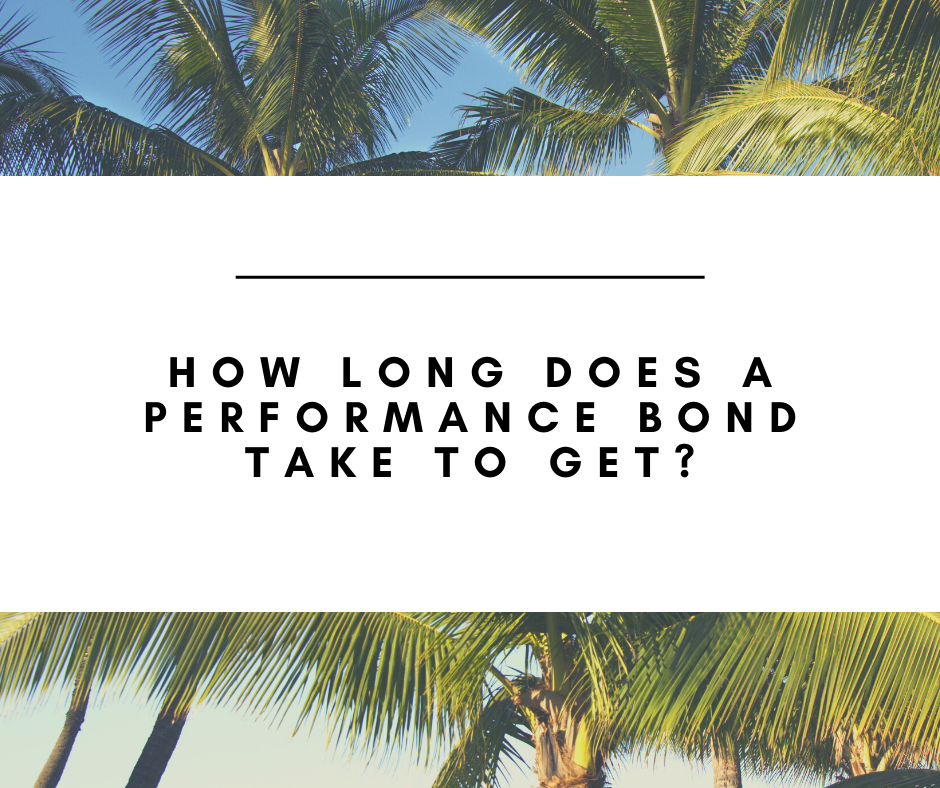What is a performance bond?
A performance bond is a type of insurance that pays for work done by subcontractors or other parties in the event of non-performance. This can be seen as an assurance to the person hiring you for your services, and it’s also a way to protect yourself from having to make up any shortfall if something goes wrong. When you perform this type of contract, there are some things you need to do before signing off on it.
A performance bond is typically refunded after completion, but this process can be complicated and unclear. In order to avoid any confusion, it’s important to have an understanding of what a performance bond entails before engaging in business with your vendor.
This bond ensures that the contractor will follow through with their obligations and provide a finished product or service as promised. The performance bond is an upfront cost to ensure you don’t experience any surprises later on down the road.
How does a performance bond work?
A performance bond, also called bid security or a payment guarantee is an agreement that can be used to ensure that one party will perform their work as described in the contract. For example, if you are hiring someone for landscaping and they agree to do the job for $5,000 with a performance bond of 10%, then they will only get paid 90% of the total project cost ($4,500) until after the job has been completed satisfactorily.
This could help both parties by ensuring that neither gets ripped off and it would provide financial protection for those doing smaller jobs. Contractors often require a performance bond before they’ll start work. A performance bond is usually 10% of the contract value and guarantees that if the contractor fails to complete their obligations, then they will pay back the full contract amount.
Performance bonds function as a type of insurance for both parties- ensuring that if one party doesn’t live up to its end of the agreement, there’s no need to fear going out of business.
Does a performance bond protect me?
A performance bond is a guarantee by the contractor that they will perform the work according to your specifications. This means if you are not satisfied with their work, or if they fail for any reason to complete it on time, then they owe you money.
Sounds simple enough right? Well, it isn’t always as straightforward as this! The tricky part about performance bonds is that some states require them under certain circumstances while others don’t. It’s important to know what rules apply in order to avoid costly mistakes and delays!
If you are considering hiring a contractor to do work on your property, it is important to be aware of the risks. One risk is that the contractor will not complete the work or will do shoddy work and leave you with an enormous bill for repairs.
A performance bond protects against this by requiring contractors to post a larger deposit upfront than just their own financial resources would allow them. If they fail to complete the job satisfactorily, they lose all of their money in addition to any penalties assessed by courts or arbitrators.
How can a performance bond protect me?
Performance bonds are a type of insurance that protects the company from losses incurred by a contractor. It is more common for companies to require performance bonds in high-risk projects where there is an expectation that the risk of loss will be higher, such as construction or mining.
The bond typically provides protection against non-payment on contracts and guarantees payment if the contract is not fulfilled. In order to make sure you have enough coverage, it’s important to know your risks before entering into any contract with potentially costly consequences.
If you are an entrepreneur, starting your own business, or running a small business, you know that risks come with the territory. One of the biggest risks is a financial risk- if your company does not do well and goes under, you could lose all of your savings. A performance bond can protect against this risk by covering any losses up to $5 million in case your company fails to meet its obligations.
How much is a performance bond?
A performance bond is a type of guarantee that can be used to secure the completion of certain types of construction projects. A contractor who has provided a bid for such a project, and been awarded it, must provide security in the form of cash or an irrevocable letter of credit from an institution regulated by federal or state authorities.
Performance bonds are an important part of the construction process. They are designed to protect both the contractor and owner in case something goes wrong with a project. Performance bonds can be waived in some cases, but it is always best to have one in place before beginning any work on a site.
The cost of performance bonds varies depending on what type of project you are contracting for, your credit history, and other factors that may affect your risk as a contractor. But regardless of these variables, there is typically no charge associated with applying for one or obtaining insurance coverage from an underwriter that offers this service if you do not qualify for self-bonding status.










